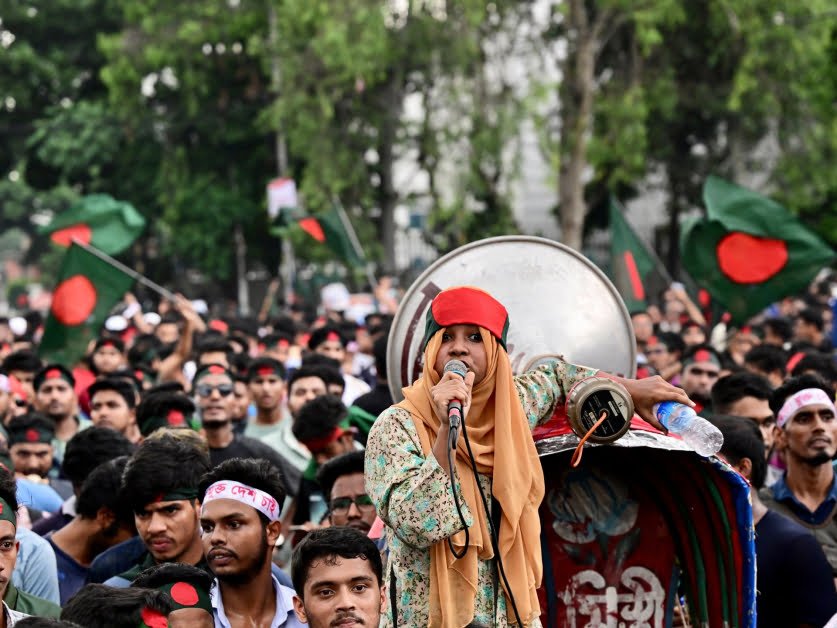The Unrest in Bangladesh: Students Rally Against Job Quotas
A wave of determination and activism has swept through Bangladesh as students take to the streets to protest against the government’s job quotas. These demonstrations have resulted in over 100 individuals being injured, highlighting the intensity of the students’ demands for a fair and transparent recruitment process that is not influenced by quotas. The students argue that such quotas hinder their chances of securing employment based on merit, sparking a heated debate over the future of job opportunities in the country.
Challenging the Status Quo
The current quota system in Bangladesh has become a focal point of contention, with critics arguing that it unfairly advantages the children of influential government officials. This system reserves more than half of well-paid civil service positions for specific groups, including the descendants of individuals who played a role in the nation’s independence struggle in 1971. The perceived bias in the system has fueled resentment among those who feel marginalized and overlooked in the recruitment process.
Tensions Escalate
As tensions escalate, violent clashes have erupted between supporters of the ruling party and protesters advocating for the elimination of job quotas. The clashes have resulted in widespread injuries, with reports indicating that both sides have engaged in acts of violence, including the use of weapons such as machetes and petrol bombs. The situation has become increasingly volatile, raising concerns about the potential for further escalation and unrest.
Calls for Reform
In response to the protests, Bangladesh’s top court temporarily suspended the quotas, but demonstrators remain steadfast in their demand for a complete abolition of the system. The protesters have vowed to continue their rallies until their voices are heard and meaningful reforms are implemented. The government faces mounting pressure to address the grievances of the students and address the underlying issues that have fueled the protests.
A Plea for Change
Amidst the chaos and turmoil, students across Bangladesh have united in their call for reform. Thousands have taken to the streets to voice their opposition to the quotas and demand a more equitable and merit-based recruitment process. The protests have garnered widespread support from diverse segments of society, reflecting a growing discontent with the status quo and a desire for meaningful change.
Looking Ahead
As the protests continue and the government grapples with the demands of the students, the future remains uncertain. The outcome of this uprising will have far-reaching implications for the future of employment opportunities in Bangladesh and the broader social and political landscape. The students’ resilience and determination serve as a powerful reminder of the importance of standing up for one’s rights and fighting for a more just and equitable society.


